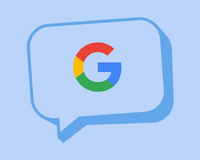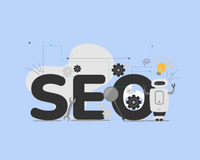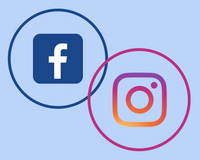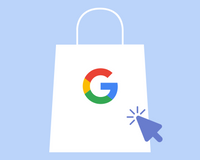Are you looking to take your SEO strategy to the next level? Customers are spending more time online than ever before, making online marketing an increasingly fruitful venture. PPC, or pay-per-click advertising is a versatile marketing strategy that allows businesses to maximize their advertising budget by bidding on specific keywords. In the following article, we answer the commonly asked questions what is PPC marketing and what are PPC bids, and discuss the many benefits of PPC marketing.
What Is PPC Marketing?
Pay-per-click (PPC) marketing is a popular digital marketing tactic that is used to drive traffic to ads and webpages. As the name suggests, advertisers using PPC marketing pay a small fee each time one of their ads is clicked. Essentially, PPC marketing is a way of paying for visits to a site. When coupled with organic traffic marketing, it allows users to maximize clicks and conversions, as well as adjust the parameters of their advertising campaigns based on changes in performance and market conditions.
The PPC marketing industry has grown substantially in recent years. In 2021, more than 10 million PPC marketers combined to spend more than $15 billion dollars on marketing campaigns. As businesses look to move away from physical marketing strategies, this amount is expect to continue to increase.
PPC Marketing Key Terms
Before diving into the specifics of PPC marketing, it is important to become familiar with a few common keywords. Many terms are often referred to using acronyms, which can make it all the more confusing for beginners unfamiliar with pay-per-click marketing. In the next few paragraphs, we explain a couple of the most popular terms used by PPC marketers.
CPC
CPC stands for cost per click and refers to the amount of money advertisers pay for each click on an ad. CPC functions as a bid in an auction, with those who bid higher seeing more clicks and more traffic. You can set CPC to a maximum price you are willing to pay for a single click.
Quality Score
Quality score is the score that search engines give your ad based on keyword relevance, click through rate, past performance on the SERPs, and the quality of your landing page. Quality score is used to determine your cost-per-click and ad rank.
A combination of metrics are used to determine an ad's quality score. These include ad relevance, landing page experience, and projected click through rate. For example, an advertisement that is deemed irrelevant and links to a low-quality page will likely accumulate a very low quality score.
Campaign
A campaign is a set of advertisements focused on a single message or product. Establishing one campaign or multiple is often the first step in setting up PPC marketing.
Landing Page
The landing page is the page on your website where users will end up if they click on your advertisement. This can be your site’s home page, a product page, a blog, or any other page. Landing page is critical to PPC marketing strategy because it often gives users their first or second impression of your site and brand.
What Are PPC Bids?
A PPC bid is a bid placed in a pay-per-click auction in an effort to place at the top of advertisement search results. In PPC marketing, online businesses and users place bids on certain terms and keywords to secure ad space. When you begin a PPC advertising campaign, you will have to answer a series of questions that may differ depending on the advertisement platform you use. One of the most essential questions in this series is the cost-per-click bid where you are asked how much money you are willing to spend every time someone clicks on your ad.
In some cases, despite thorough research, you may find that your ad has been outbid by a competitor. While there could be other related problems, it is most likely that your campaign has been outbid by a competitor. Fortunately, there are a number of tactics you can use to optimize your bidding strategy.
How To Use PPC Marketing To Get More Sales
When working to improve PPC bidding, it is essential to stay up to date on more than just campaign analytics. Accurate and thorough research on the market rate for bids on certain keywords is essential. This work can help you redesign your advertising budget to ensure the keywords that are most likely to rank receive the largest influx of capital.
Update Bids Often
PPC bids are most successful when they target keywords and terms with relatively low competition. After setting up a PPC campaign, you will hopefully begin to see certain keywords and products ranking relatively well, even if others fail to appear at all. Rather than increasing spending on keywords with limited visibility, it is often advisable to continue fueling the fires of the advertisements that work. Remember, you can always decrease your bid if the increase in traffic drops off.
Focus Your Campaign On Search Users
Search users are specifically those who search Google when looking for information. Building a PPC marketing strategy that focuses exclusively on search users can prevent your campaign from spending capital unnecessarily on users who are only looking for related terms or have no purchase intent at all. Selecting display networks in addition to search networks may increase your overall reach, but might only attract customers who do not intend to purchase your product.
Use The Best Phrases And Keywords
With millions of keyword options available, it can be difficult to determine which ones are most likely to rank and drive traffic to your products and store. While it may be tempting to simply throw keywords at ads in an effort to rank for something, it is important to remember that the advertisement landscape is quite competitive,and Google does not reward users who use keywords in a lackadaisical manner. One of the advantages of PPC marketing is that you can come up with creative, out-of-the-box keywords and phrases and then change them later if they fail to perform.
Benefits Of PPC Marketing
Recent studies show that over half of American consumers prefer to shop online rather than in person. Advancements in advertising and marketing technology have made online shopping easier than ever before, and delivery quick and hassle free. Pay-per-click advertising can be a lucrative strategy for any business looking to reach a wide audience of online customers. When implemented correctly, PPC marketing can increase sales, build brand recognition, and cut down on advertising costs.
Increase Sales
What drives every business, whether small or large, emerging or established? Sales. Simply put, most businesses cannot function without adequate cash flow. PPC marketing can work wonders to increase sales because it can be tailored to target search engine users who type in keywords with purchase intent. A thorough and targeted PPC campaign not only increases general leads, it also brings in more targeted leads from consumers looking for the exact kind of product you are selling.
Control Advertising Costs
One of the most popular features of the pay-per-click model is its ability to allow users to control exactly how much they spend on advertising. Unlike some strategies that require a set influx of money, PPC campaigns can be consistently updated according to performance. In addition, PPC advertising has no set amount that you are required to spend over a period of time.
PPC Marketing Can Build Brand Awareness
Studies show that it takes at least 3 months, and even up to 2 years, to build brand awareness and attract loyal customers. In many cases, a customer has to see a product countless times before they decide to purchase a product. Even if these customers do not make a purchase, it is likely that some aspect of the advertisement campaign has stuck in their mind, and they may return to the product in the future.
PPC Informs SEO Strategy
PPC marketing channels can serve as testing grounds for keywords that might be useful in SEO articles and strategies. Data on certain organic keywords for SEO is limited according to privacy, but paid advertising campaigns often have no limit on keyword data. Thus, PPC marketing research and data can be directly used to improve elements of SEO marketing, including meta description tags, headers, and article content. The most effective SEO and PPC strategies feed off one another and capitalize on a wide breadth of data.
Boost Traffic
How does one use PPC marketing to grow website traffic? After all, an advertisement can only be effective if people see it and are incentivized to learn more. The first step is often to optimize PPC ads for both desktop and mobile. According to data from GSMA intelligence, there are more than 5 billion mobile users around the world, and this number is only increasing. Focusing on only desktop instead of both desktop and mobile may exclude a large portion of your audience.
When it comes to pay-per-click advertising, it is important to understand what drives customers to click and eventually purchase. Advertisements that see the most traffic are often those which contain an emotional call to action, multiple statistics, and a wealth of keywords.
PPC Marketing Vs. SEO
SEO and PPC marketing are two separate strategies that both belong to the same side of the digital marketing spectrum. While SEO services focus on driving organic traffic to specific pages, PPC marketing is concerned with creating and optimizing paid ads in an effort to increase visibility.
Ideally, you would want your business to invest significant capital into both PPC and SEO marketing strategies. This would maximize your audience and help your brand exert influence over multiple platforms. PPC and SEO work best when performed simultaneously, as their separate strategies can often feed into one another.
The benefits of using PPC marketing and SEO at the same time include the following:
- Keyword data from PPC can be used to improve keyword rankings in SEO.
- Keywords can be moved from PPC to organic search and vise-versa.
- You can test your keyword strategy in PPC before beginning long term SEO.
- Target users and collect data at all stages of the purchase process.
What Are The Top PPC Marketing Platforms?
Most people think of PPC marketing in terms of Google only. Unsurprising, considering that Google accounts for more than 90% of the online searches. However, Google AdWords is not the only platform for PPC marketing. Facebook, Twitter, and LinkedInAds are also popular platforms that may be useful in improving sales
Google Ads
Perhaps the most popular PPC marketing platform, Google Ads is a diverse program that works well for both beginner and experienced advertisers alike. Google Ads will allow you to reach users who conduct searches on the Google Search Network and affiliated platforms. They are especially fruitful when one considers that more than 3.8 million searches are made on Google every minute, easily dwarfing the search volume of other platforms such as Bing. Essentially, PPC marketing on Google allows users to decide which keywords to target and how much to spend on each keyword group.
Search audiences for Google advertisements depend entirely on the relation between a user’s search term and the keywords in the search campaign. It is even possible to sort keywords based on intent to pay only for clicks that are predicted to reach customers looking to buy. Google Ads come in three basic formats: search ads, display ads, and video ads. Check out this article to learn more about Google ads, how they work, and their many benefits.
Instagram Ads
The cost of an Instagram advertising campaign is dependent on competition, ad placement, time of year, and the targeted audience, among other factors. The diversity of Instagram ads reflects the multifarious uses of the platform. Advertisements can appear in stories, posts, the explore page, collections, IGTV, and the shopping store, among others. Learn more about how to set up Instagram ads in our blog.
Facebook Ads
Facebook offers an expansive PPC advertising network that allows you to reach customers. Unlike Google, Facebook ads target users based on a variety of factors including age, location, user profile, connections, interests, relationship status, and gender. They can also be specified for broad categories such as gardening, electronics, and sports. The downside of broad targeting, however, is that it often requires spending more money to reach customers that may only be interested in search terms loosely related to your product. Curious to learn more about Facebook ads? Our detailed blog on Facebook ads outlines what they are, how they work, and how to set them up, among other topics.
Overall
Pay-per-click marketing is an online advertising strategy that seeks to drive traffic to websites. Companies that employ PPC marketing pay a certain amount each time their advertisement is clicked on by a search engine user.
In PPC marketing, advertisers bid on specific keywords in an effort to secure ad space closer to the top of search engine result pages. PPC advertising campaigns that select the best keywords and update bids often can see significant increases in website traffic, brand awareness, SEO rankings, and overall sales.





